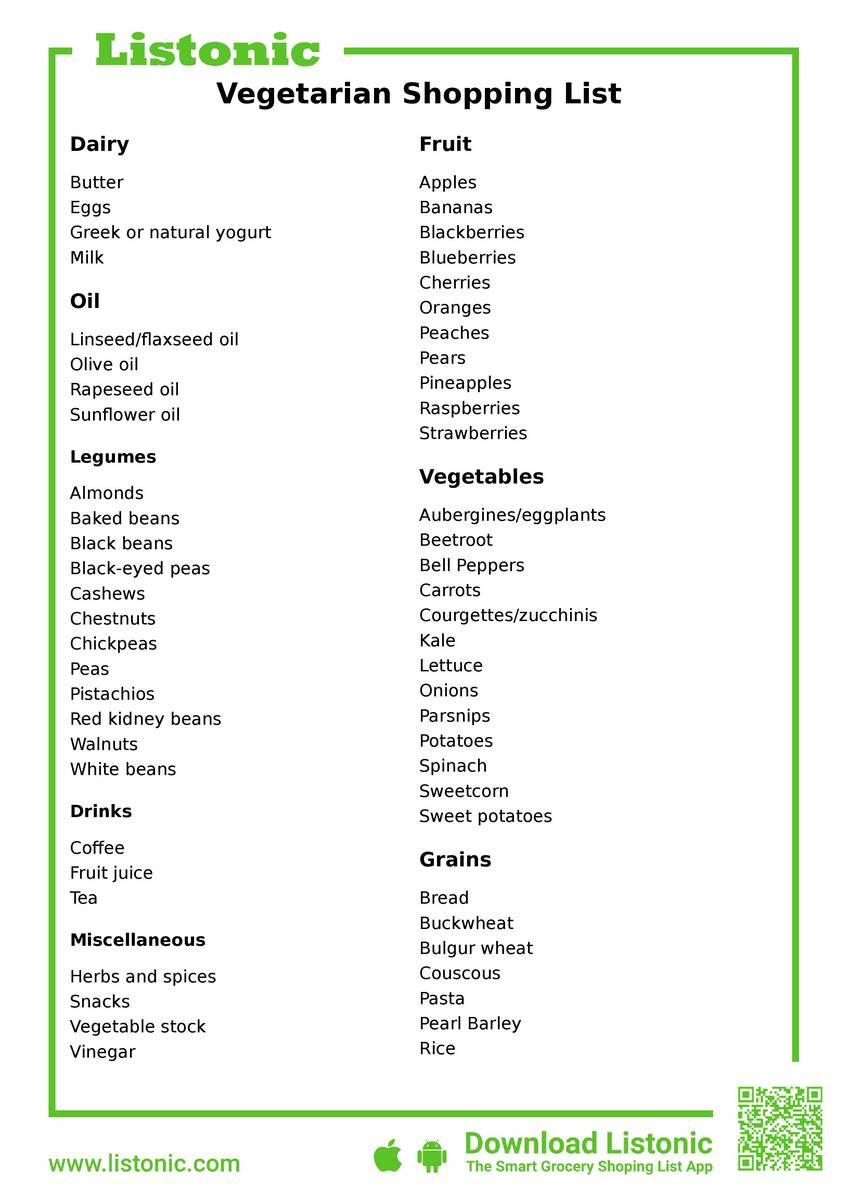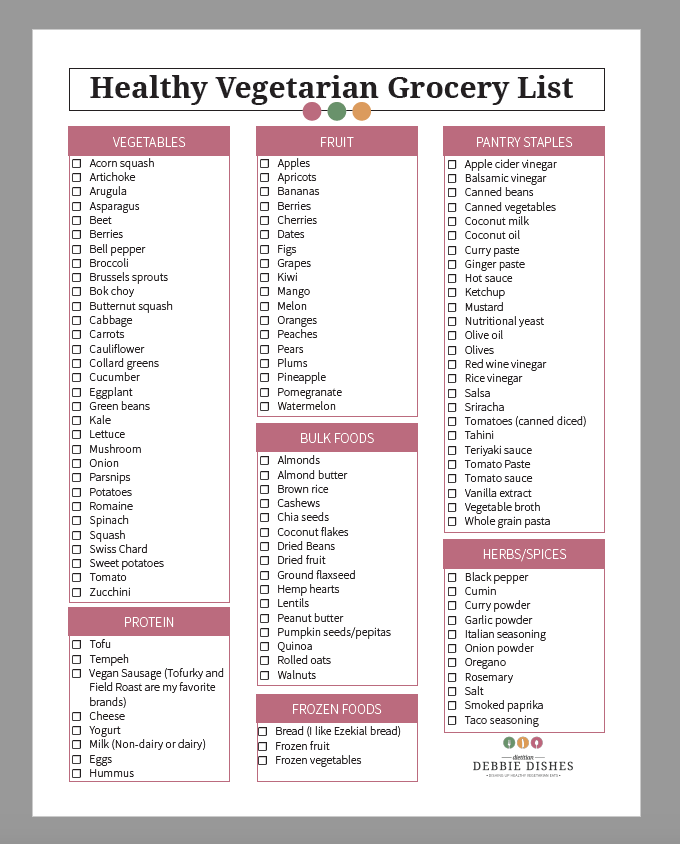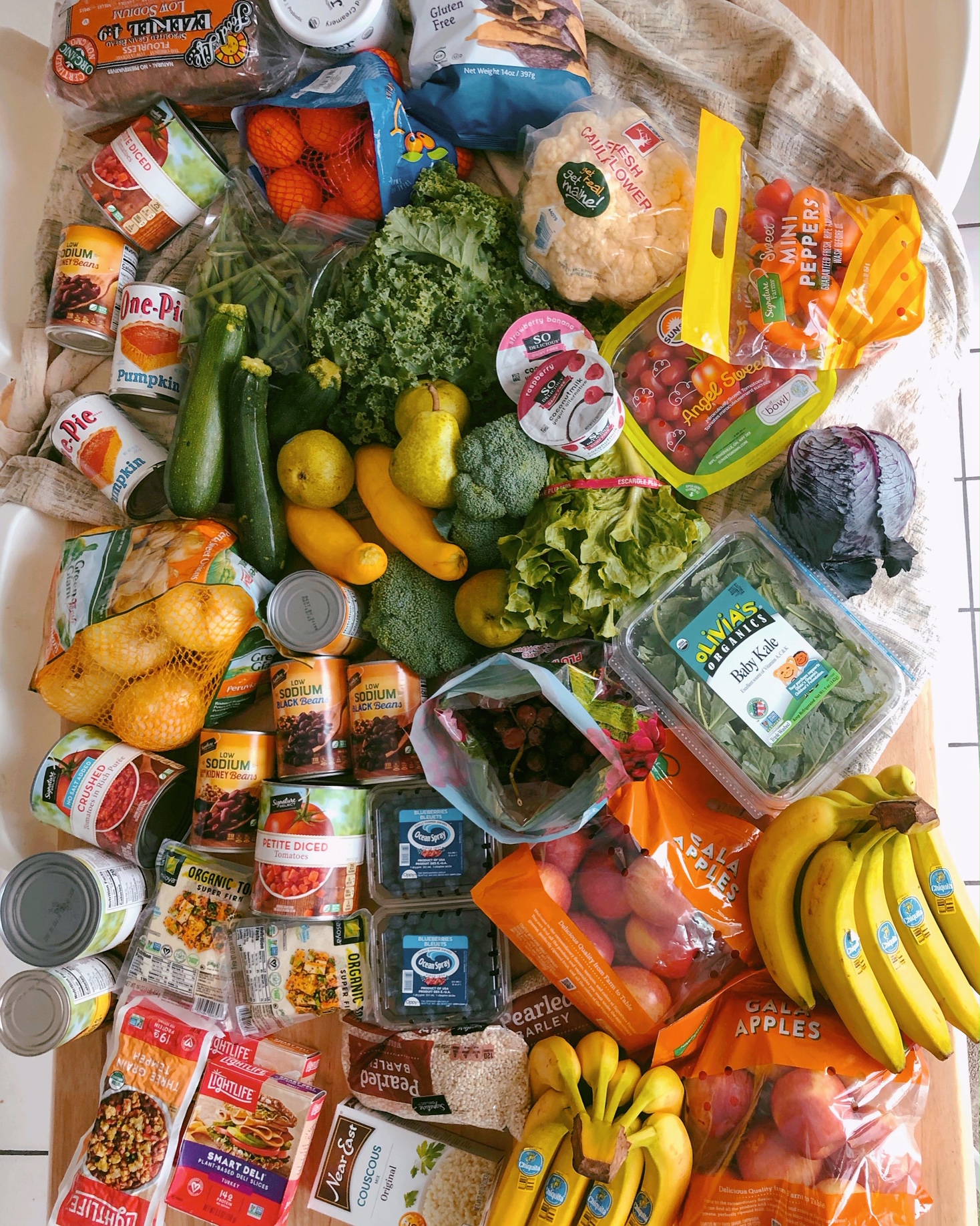Vegetarian groceries provide a variety of plant-based foods. These include fruits, vegetables, grains, legumes, nuts, and seeds.
Vegetarian diets have gained popularity due to their health benefits and environmental impact. Many people are switching to plant-based foods to improve their well-being and reduce their carbon footprint. Grocery stores now offer a wide range of vegetarian options, from fresh produce to packaged goods.
Items like tofu, tempeh, lentils, and quinoa are staples in many vegetarian households. Fresh fruits and vegetables, whole grains, and various nuts and seeds offer essential nutrients. Choosing vegetarian groceries can lead to a healthier lifestyle and a more sustainable planet. With the growing demand, finding vegetarian products in stores has become easier than ever.
Introduction To Vegetarian Groceries
Welcome to the world of vegetarian groceries. This journey can be exciting and rewarding. Vegetarian groceries offer a wide range of healthy and delicious options. You can find fresh fruits, vegetables, grains, nuts, and legumes. These foods are not only nutritious but also versatile in cooking. Let’s explore why and how to transition your pantry.
Why Go Vegetarian?
There are many benefits to adopting a vegetarian lifestyle. Here are some key reasons:
- Health Benefits: A vegetarian diet can lower the risk of heart disease, diabetes, and certain cancers.
- Environmental Impact: Plant-based diets have a smaller carbon footprint. They use fewer resources and produce less waste.
- Ethical Reasons: Many choose vegetarianism to prevent animal suffering.
These reasons make vegetarianism a thoughtful and impactful choice.
Transitioning Your Pantry
Transitioning to a vegetarian pantry can be smooth with a few tips:
- Start Small: Begin by replacing meat with plant-based proteins. Try beans, lentils, and tofu.
- Stock Up on Essentials: Keep your pantry filled with grains, nuts, seeds, and spices. These items are versatile and nutrient-rich.
- Experiment with Recipes: Find new vegetarian recipes to keep meals exciting. There are countless options online and in cookbooks.
- Plan Your Meals: Weekly meal planning can help you stay on track. It ensures you have all the ingredients you need.
Here is a simple table to help you get started:
| Food Category | Examples |
|---|---|
| Proteins | Beans, Lentils, Tofu, Tempeh |
| Grains | Quinoa, Brown Rice, Oats, Whole Wheat Pasta |
| Nuts & Seeds | Almonds, Chia Seeds, Flaxseeds, Walnuts |
| Fruits & Vegetables | Spinach, Broccoli, Apples, Bananas |
With these tips and essentials, your transition to vegetarian groceries will be enjoyable and successful.

Credit: listonic.com
Fresh Produce Picks
Choosing the right fresh produce is essential for any vegetarian kitchen. Fresh vegetables and fruits add vibrant flavors and essential nutrients. Below, we have highlighted some top picks.
Seasonal Vegetables
Seasonal vegetables are fresher and more nutritious. They are also more affordable and better for the environment.
Here’s a quick guide to some top seasonal vegetables:
| Season | Vegetables |
|---|---|
| Spring | Asparagus, Spinach, Peas |
| Summer | Tomatoes, Zucchini, Bell Peppers |
| Fall | Squash, Kale, Brussels Sprouts |
| Winter | Carrots, Beets, Cabbage |
Fruits For Every Season
Fruits are a delightful addition to any vegetarian diet. They offer natural sweetness and are packed with vitamins.
Here are some seasonal fruit suggestions:
- Spring: Strawberries, Pineapples, Mangoes
- Summer: Watermelons, Peaches, Blueberries
- Fall: Apples, Pears, Pomegranates
- Winter: Oranges, Kiwis, Grapefruits
Protein-packed Staples
In a vegetarian diet, finding sources of protein is crucial. Protein is essential for muscle growth, energy, and overall health. Fortunately, there are plenty of vegetarian groceries that are rich in protein. Let’s explore some of these protein-packed staples that can be easily included in your grocery list.
Legumes And Beans
Legumes and beans are excellent sources of protein. They are versatile and can be used in various dishes. Here are some popular options:
- Lentils: High in protein and fiber. They cook quickly and are perfect for soups and stews.
- Chickpeas: Great for making hummus or adding to salads. They are rich in protein and iron.
- Black Beans: Perfect for Mexican dishes. They are packed with protein and antioxidants.
- Kidney Beans: Ideal for chili and curries. They are high in protein and vitamins.
| Legume/Bean | Protein (per 100g) |
|---|---|
| Lentils | 9g |
| Chickpeas | 19g |
| Black Beans | 21g |
| Kidney Beans | 24g |
Tofu And Tempeh Essentials
Tofu and tempeh are fantastic sources of plant-based protein. They are made from soybeans and can be used in many recipes. Let’s take a closer look:
- Tofu: Comes in different textures such as soft, firm, and extra firm. It’s great for stir-fries, salads, and even smoothies.
- Tempeh: Has a firmer texture compared to tofu. It’s excellent for grilling, baking, and adding to sandwiches.
| Product | Protein (per 100g) |
|---|---|
| Tofu | 8g |
| Tempeh | 19g |
Including these protein-packed staples in your diet ensures you get the necessary nutrients. They are not only nutritious but also delicious and versatile.
Whole Grains And Cereals
Whole grains and cereals are essential in a vegetarian diet. They provide vital nutrients and energy. They are also rich in fiber, vitamins, and minerals.
Quinoa, Rice, And Beyond
Quinoa is a superfood packed with protein. It is a great source of iron and magnesium. Cook it like rice and use it in salads or as a side dish.
Rice comes in many varieties like brown, basmati, and jasmine. Brown rice is rich in fiber. Basmati has a fragrant aroma. Jasmine rice is soft and sticky. Use them in stir-fries, curries, or as a base for your favorite dishes.
Other whole grains to consider are bulgur, barley, and millet. Bulgur is quick to cook and perfect for salads. Barley adds a chewy texture to soups. Millet is versatile and can be used in breakfast porridge or savory dishes.
Breakfast Cereals To Start Your Day
Breakfast cereals are an easy and quick option. Choose cereals made from whole grains. Look for options with no added sugar.
- Oatmeal is a classic choice. It is filling and nutritious. Top it with fruits and nuts.
- Muesli is a mix of oats, nuts, and dried fruits. It is perfect with milk or yogurt.
- Whole-grain flakes are crunchy and tasty. They are often enriched with vitamins and minerals.
Here is a table of common whole grains and their benefits:
| Grain | Benefits |
|---|---|
| Quinoa | High in protein, rich in iron |
| Brown Rice | High in fiber, good source of magnesium |
| Bulgur | Quick to cook, great for salads |
| Barley | Chewy texture, good for soups |
| Millet | Versatile, can be used in both sweet and savory dishes |
Incorporating these grains and cereals into your diet can boost your health. They are nutritious, delicious, and versatile.
Dairy Alternatives
Switching to a vegetarian diet doesn’t mean you have to give up on delicious dairy products. There are numerous dairy alternatives that cater to your needs while being healthy and tasty. Let’s dive into some of the best options available for milk, cheese, and yogurt substitutes.
Milk Substitutes
Many people are turning to milk substitutes for various reasons. These alternatives offer a range of flavors and nutritional benefits.
- Almond Milk: Low in calories and has a subtle nutty flavor.
- Soy Milk: Rich in protein, this milk is a great all-rounder.
- Oat Milk: Creamy and high in fiber, perfect for coffee.
- Coconut Milk: Adds a tropical twist to your recipes.
Each of these milk substitutes can be found in most grocery stores. They are versatile and can be used in various recipes.
Vegan Cheese And Yogurt
Vegan cheese and yogurt have come a long way in terms of taste and texture. These products are great for those who are lactose intolerant or prefer a plant-based diet.
Here are some popular vegan cheese options:
- Cashew Cheese: Creamy and rich, perfect for spreads and sauces.
- Almond Cheese: Has a mild flavor and is great for slicing.
- Coconut Cheese: Adds a unique flavor to your dishes.
For yogurt, you have several choices:
- Soy Yogurt: High in protein and comes in various flavors.
- Coconut Yogurt: Creamy and perfect for smoothies.
- Almond Yogurt: Light and has a subtle nutty taste.
These options are not only delicious but also packed with nutrients. You can find them in the dairy section of your local grocery store.
Healthy Fats And Oils
Healthy fats and oils are essential for a balanced vegetarian diet. They support brain function, hormone production, and cell health. Including these nutrient-rich oils and fats in your meals will enhance both taste and nutrition.
Avocado And Olive Oil
Avocado oil and olive oil are powerhouse ingredients in vegetarian cooking. Avocado oil is rich in monounsaturated fats, which are heart-healthy. It also contains vitamin E, which is good for the skin. Olive oil is a staple in Mediterranean diets and is known for its anti-inflammatory properties. It is packed with antioxidants that fight free radicals.
Both oils are versatile and can be used in various dishes:
- Salad dressings
- Sautéing vegetables
- Drizzling over cooked dishes
- Baking
Using these oils in your daily cooking can boost your overall health.
Nuts And Seeds
Nuts and seeds are excellent sources of healthy fats. They also provide protein, fiber, and essential vitamins and minerals. Examples of nutrient-dense nuts and seeds include:
| Nut/Seed | Key Nutrients |
|---|---|
| Almonds | Vitamin E, Magnesium |
| Walnuts | Omega-3 Fatty Acids |
| Chia Seeds | Omega-3, Fiber |
| Flaxseeds | Lignans, Omega-3 |
Including nuts and seeds in your diet can be simple. Here are some ideas:
- Sprinkle them on yogurt or oatmeal.
- Add them to smoothies.
- Include them in baked goods.
- Use as a topping for salads.
These small additions can make a big difference in your nutrition.
Snacks And Treats
Snacks and treats are essential parts of a vegetarian diet. They keep you energized and satisfied between meals. Finding delicious and healthy options can be challenging. This guide helps you explore the best vegetarian snacks and treats.
Healthy Snacking Options
Healthy snacks can be both tasty and nutritious. Here are some great choices:
- Hummus with Veggie Sticks: Carrots, cucumbers, and bell peppers dipped in hummus.
- Nuts and Seeds: Almonds, walnuts, and sunflower seeds provide protein and healthy fats.
- Fruit Salad: Mix fresh fruits like apples, bananas, and berries for a sweet treat.
Adding these snacks to your diet can keep you full and healthy. They are easy to prepare and take on the go.
Sweet Treats Without Guilt
Sweet treats don’t have to be unhealthy. Here are some guilt-free options:
- Dark Chocolate: Choose dark chocolate with at least 70% cocoa. It’s rich in antioxidants.
- Fruit Smoothies: Blend your favorite fruits with almond milk or yogurt.
- Oatmeal Cookies: Make cookies with oats, honey, and dried fruits for a sweet and healthy treat.
These sweet treats are satisfying and nutritious. Enjoy them without feeling guilty.
Here is a table summarizing these snack options:
| Snack | Description |
|---|---|
| Hummus with Veggie Sticks | Carrots, cucumbers, and bell peppers with hummus. |
| Nuts and Seeds | Almonds, walnuts, and sunflower seeds. |
| Fruit Salad | Apples, bananas, and berries mixed together. |
| Dark Chocolate | Dark chocolate with at least 70% cocoa. |
| Fruit Smoothies | Blended fruits with almond milk or yogurt. |
| Oatmeal Cookies | Cookies made with oats, honey, and dried fruits. |
Incorporate these snacks and treats into your diet. They are delicious and nutritious.

Credit: dietitiandebbie.com
Spices And Herbs
Spices and herbs are essential in every vegetarian kitchen. They add flavor, aroma, and nutrition to meals. Let’s explore how these ingredients can elevate your vegetarian dishes.
Flavor Boosters
Spices and herbs are natural flavor boosters. They can make simple dishes taste amazing. Here are some common spices and their uses:
| Spice | Common Uses |
|---|---|
| Turmeric | Adds color and earthy flavor to curries and rice. |
| Cumin | Great for soups, stews, and spice blends. |
| Cinnamon | Perfect for desserts, oatmeal, and baked goods. |
| Paprika | Enhances stews, grills, and roasted vegetables. |
Herbs can also enhance your meals. Here are some popular herbs:
- Basil: Ideal for pasta, pizza, and salads.
- Oregano: Perfect for Italian and Mediterranean dishes.
- Thyme: Adds depth to soups, stews, and roasted vegetables.
- Parsley: Freshens up salads, soups, and sauces.
Herbal Teas And Benefits
Herbal teas are more than just drinks. They offer many health benefits. Here are some popular herbal teas:
- Chamomile Tea: Known for its calming effects. Helps with sleep and digestion.
- Peppermint Tea: Refreshing and soothing. Eases headaches and digestive issues.
- Ginger Tea: Warming and spicy. Great for nausea and inflammation.
- Rooibos Tea: Rich in antioxidants. Supports heart health and skin.
Herbal teas can be enjoyed hot or cold. They are a healthy addition to your daily routine.
Shopping Tips And Tricks
Buying vegetarian groceries can be fun and rewarding. You can find fresh produce, save money, and eat healthily. Use these tips and tricks to make your shopping easier.
Seasonal Shopping
Buy fruits and vegetables in season. They are fresher, tastier, and cheaper. Seasonal produce is also more nutritious.
Here is a quick guide:
| Season | Fruits | Vegetables |
|---|---|---|
| Spring | Strawberries, Pineapple | Asparagus, Spinach |
| Summer | Watermelon, Peaches | Corn, Tomatoes |
| Fall | Apples, Grapes | Squash, Sweet Potatoes |
| Winter | Oranges, Pomegranates | Brussels Sprouts, Kale |
Budget-friendly Tips
Save money on your vegetarian groceries with these tips:
- Plan your meals. Make a list of what you need.
- Buy in bulk. Items like beans, rice, and nuts are cheaper in bulk.
- Use coupons and discounts. Look for sales in your local store.
- Grow your own vegetables. Even a small garden can produce a lot.
By following these tips, you can enjoy delicious, healthy meals without spending too much.

Credit: thefriendlyfig.com
Frequently Asked Questions
What Foods Can Vegetarians Eat List?
Vegetarians can eat fruits, vegetables, grains, legumes, nuts, seeds, dairy products, and eggs. They avoid meat, poultry, and fish.
What Are Popular Vegetarian Foods?
Popular vegetarian foods include salads, vegetable stir-fries, lentil soups, veggie burgers, pasta dishes, tofu, and quinoa bowls.
What Are The Essential Vegetarian Foods?
Essential vegetarian foods include leafy greens, beans, lentils, nuts, seeds, tofu, tempeh, whole grains, and fruits. These provide vital nutrients.
What Is Vegetarian Food Products?
Vegetarian food products are items that do not contain meat, fish, or poultry. They include vegetables, fruits, grains, nuts, and dairy.
Conclusion
Choosing vegetarian groceries can transform your health and the planet. Opt for fresh, local produce whenever possible. Explore diverse plant-based options to keep meals exciting. Embrace the benefits of a vegetarian lifestyle today. Your body and the environment will thank you.
Happy shopping and enjoy your journey to better eating!









Leave a Reply